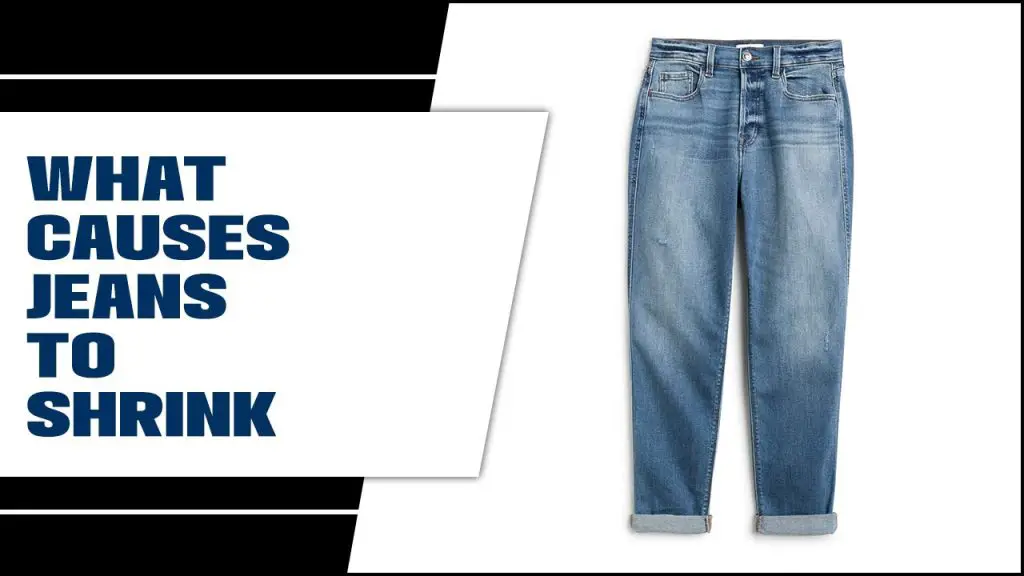Jeans, beloved for their comfort and timeless style, are susceptible to shrinking under certain conditions. Understanding the factors contributing to this phenomenon can help you preserve the fit and longevity of your denim.
From fabric composition to washing methods, several key factors play a role in why jeans shrink unexpectedly. Let’s delve into the reasons behind denim shrinkage and how you can prevent it from maintaining your favourite pairs for longer.
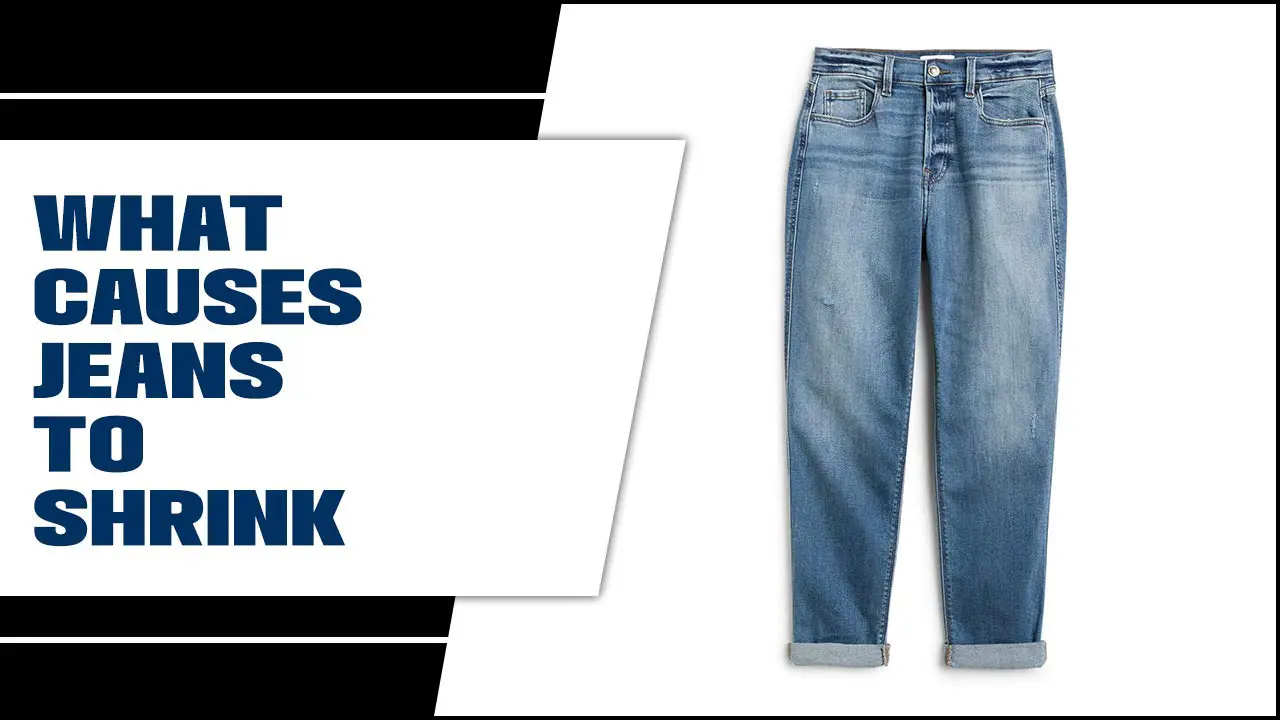
1. Fabric Composition
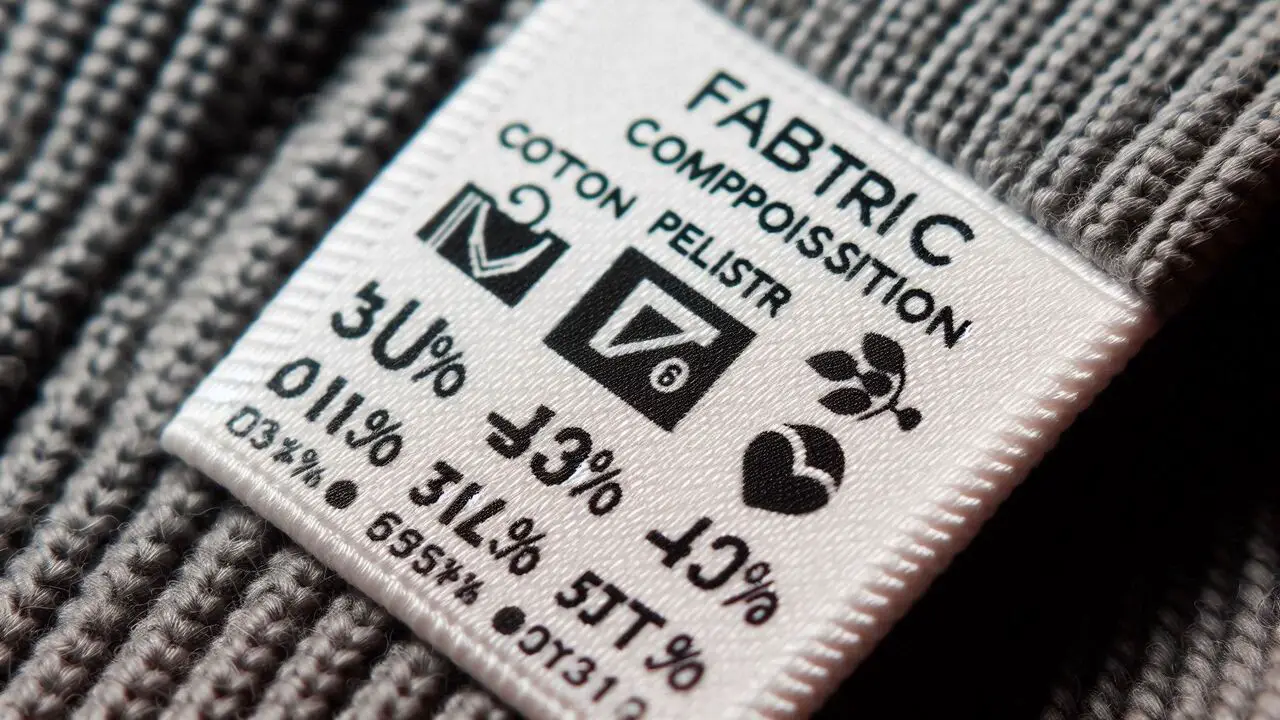
Natural Fibers: Jeans made from 100% cotton or denim with a high cotton content are prone to shrinking. Cotton fibers have a natural tendency to contract when exposed to heat and moisture.
Synthetic Blends: Jeans with synthetic fibers like polyester or elastane are less likely to shrink. These fibers are more resistant to heat and moisture, maintaining their shape better over time.
2. Washing and Drying Methods
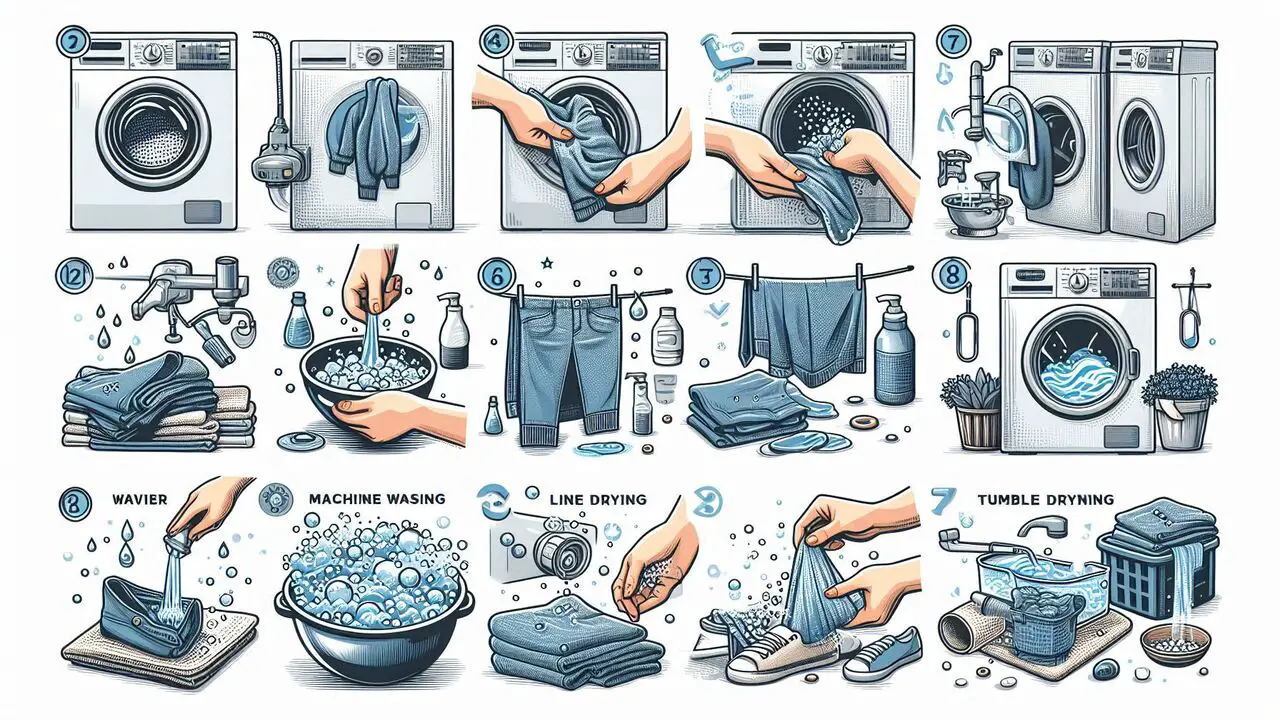
Hot Water: Washing jeans in hot water can cause them to shrink significantly, especially if they are made from natural fibers. Hot water relaxes the fibers, allowing them to contract and reduce in size.
Drying Temperature: High heat from tumble drying can also contribute to shrinking. Combining heat and mechanical action can cause the fabric to tighten and shrink. Air drying or using a low-heat setting can help minimize shrinkage.
3. Agitation and Friction
Washing Machine Agitation: Aggressive washing machine cycles with heavy agitation can stress the fibers and lead to shrinkage, particularly in cotton denim.
Rubbing and Friction: Excessive rubbing or friction during washing, especially in areas like the thighs or knees, can wear down the fabric and contribute to shrinkage over time.
4. Incorrect Sizing
Pre-shrunk vs. Unwashed: Some jeans are labeled as pre-shrunk, meaning they have undergone a process to minimize shrinking before being sold. Unwashed or raw denim, on the other hand, may shrink significantly upon the first wash. Choosing jeans that are too tight initially increases the likelihood of noticeable shrinkage. Tight-fitting jeans are more susceptible to shrinkage because the fibers have less room to expand during washing and drying.
5. Chemical Treatments
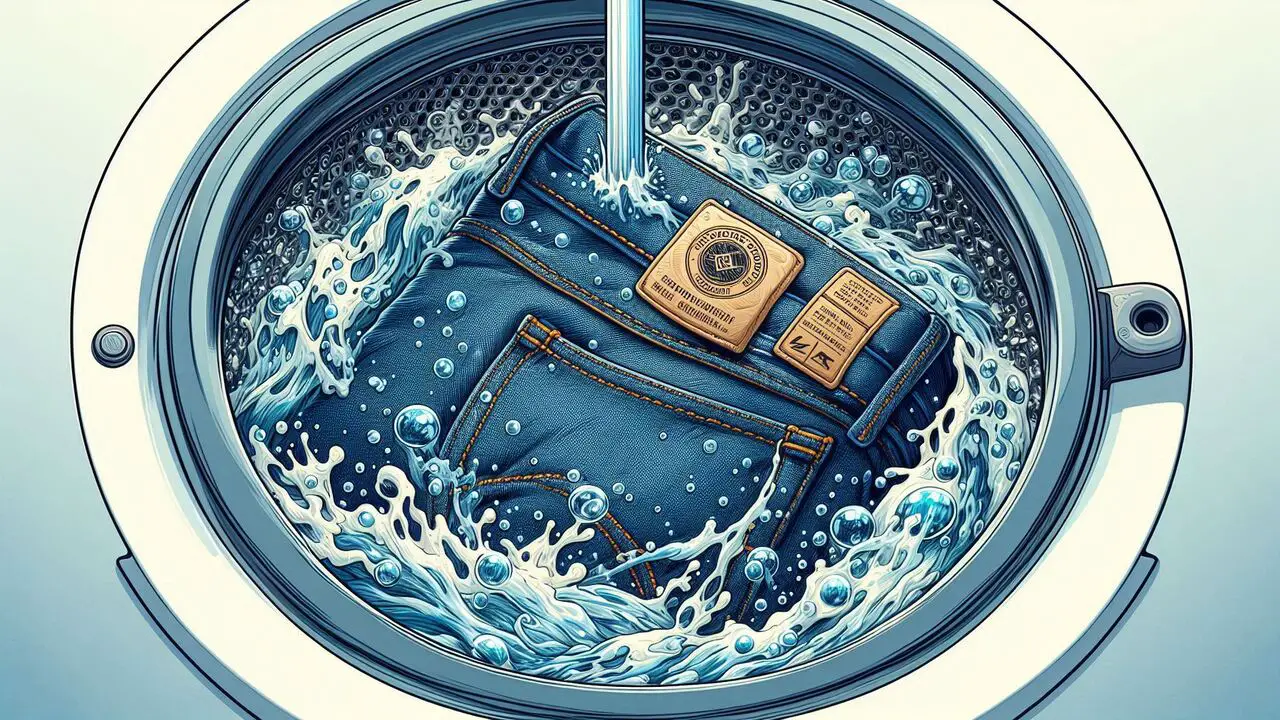
Fabric Finishes: Certain chemical treatments or finishes applied to denim during manufacturing can affect how the fabric responds to washing and drying. These treatments may influence shrinkage behavior, especially in combination with heat.
Preventing Shrinkage
To prevent jeans from shrinking, read and follow the care label on your jeans. Wash in cold water and air dry or use a low-heat setting.
- Avoid Hot Water and High Heat: Wash jeans in cold water and minimize tumble drying. Air drying flat or hanging can help preserve the shape and size of your jeans.
- Choose Synthetic Blends: Consider jeans with a blend of cotton and synthetic fibers, which are less likely to shrink compared to 100% cotton denim.
Understanding the causes of jeans shrinking allows you to take proactive steps to preserve their fit and appearance. By adopting proper washing and drying practices and choosing denim wisely, you can maintain the integrity of your jeans for longer wear.
Conclusion
In conclusion, several factors contribute to jeans’ shrinking, primarily stemming from their fabric composition and how they are washed and dried. Natural fibers like cotton are prone to shrinkage when exposed to heat and moisture, especially in hot water and high-heat drying cycles.
Aggressive washing methods and incorrect sizing also play significant roles. Understanding these causes empowers individuals to adopt proper care practices, such as washing in cold water and air drying or using low heat, to preserve the fit and longevity of their denim garments.
FAQs
1.Do Jeans Permanently Shrink?
No, jeans do not permanently shrink. Exposure to heat or hot water may cause them to shrink temporarily, but you can usually stretch or relax them back into their original size and shape.
2.Can You Unshrink Your Jeans?
Unfortunately, once jeans have shrunk, it is challenging to reverse the process. Stretching damp jeans or using specialized products may provide some minor relief, but prevention is key to avoiding significant shrinkage.
3.Do Cotton Jeans Shrink?
Yes, cotton jeans have the potential to shrink. Cotton is a natural fibre that tends to shrink when exposed to heat or moisture. When washed and dried at high temperatures, cotton jeans can shrink in length and width.
4.Do All Jeans Shrink?
Not all jeans shrink equally. The extent of shrinkage depends on factors like fabric composition, washing and drying methods, and initial sizing.
5.How Can I Stretch Jeans That Have Shrunk?
Gently stretching damp jeans while wearing them or using a denim stretching spray may help relax fibers slightly. However, results may vary, and prevention of shrinkage is more effective.
6.Are Shrink-To-Fit Jeans Worth It?
Shrink-to-fit jeans, typically raw denim, are designed to shrink to the wearer’s body after the first wash. They require careful sizing and initial stretching to achieve the desired fit.
7.What Temperature Should I Wash Jeans To Prevent Shrinkage?
Wash jeans in cold water (30°C or below) to minimize shrinkage. The cold water helps preserve the shape and colour of denim while reducing the risk of fibres contracting.
8.Does Cold Water Shrink Jeans?
No, cold water does not shrink jeans. Shrinking jeans typically require hot water and heat, such as using a dryer on high heat or ironing them. Cold water is generally safe for washing jeans and will not cause them to shrink.
9.What Is The Best Way To Wash Jeans To Prevent Shrinking?
To prevent shrinking, turn the jeans inside out before washing them in cold water on a gentle cycle. Avoid using hot water or high heat when drying; instead, opt for air drying or using a low heat setting. Additionally, refrain from over washing and using harsh detergents to maintain the jeans’ shape and color.


